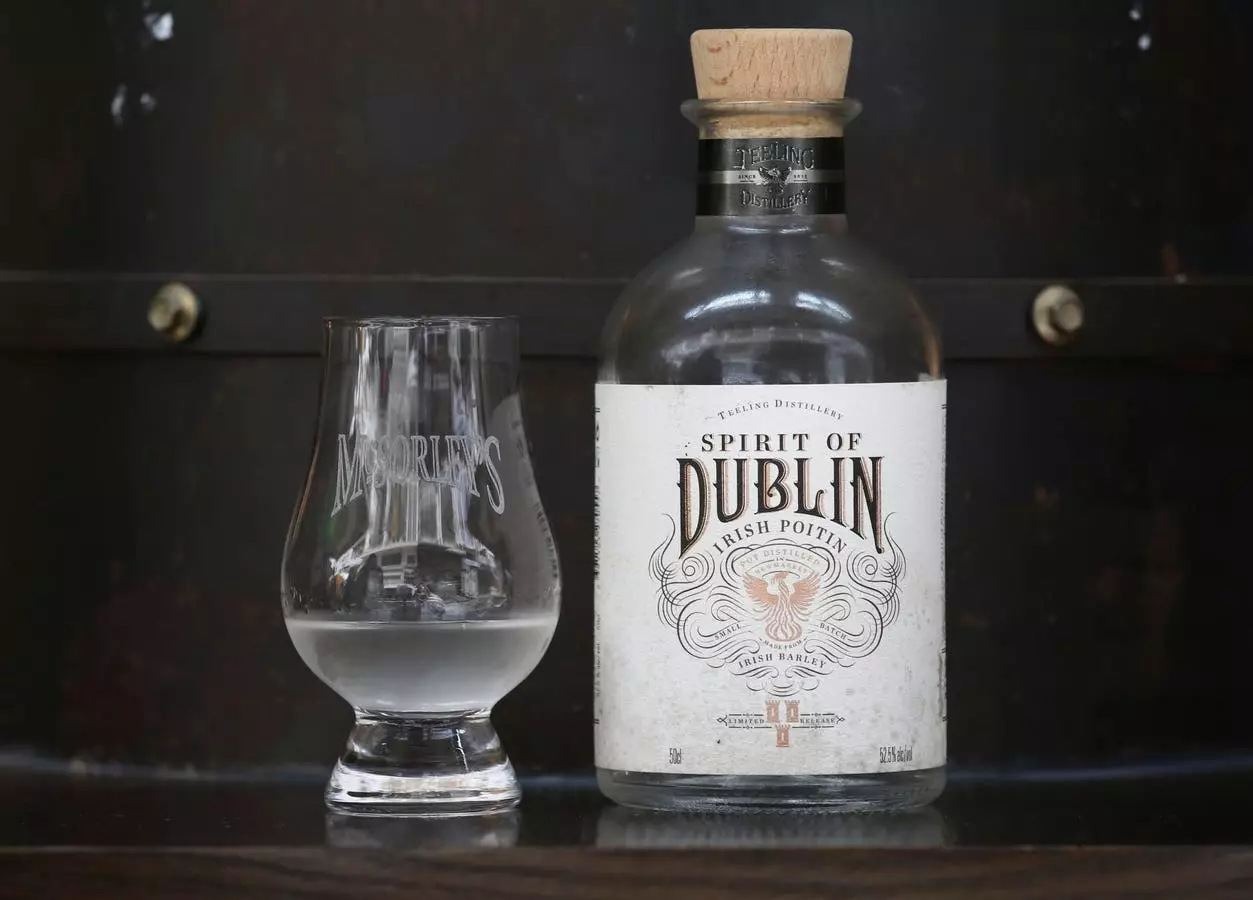Poitín, an Irish distillate with ancient roots, has been somewhat lost in the shadow of its more renowned counterparts, Guinness and Irish whiskey. For centuries, this potent spirit was relegated to the fringes of legality, only to reemerge into the spotlight after a ban lasting over 300 years was lifted in 1997. This was a period marked by secret distilleries operating throughout the rural landscapes, producing this ‘moonshine’ in clandestine conditions. Originally derived from the Gaelic term for “little pot,” poitín is the very essence of Irish heritage, often showcased in farmhouses and homely quarters.
Historically, poitín was distilled from diverse sources, most commonly malted barley. However, variations in the mash bill allowed for an amalgamation of ingredients, including unconventional additions like crab apples and sugar beets. This diversity resulted in a product that showcased the individuality of the distiller, as the flavor and quality could dramatically differ from one batch to another based on the location, season, and techniques employed.
The government’s effort to suppress poitín production during the 17th century effectively pushed the spirit underground, leading to its establishment as not just a beverage, but a symbol of resistance against English colonial rule. The defiance of rural communities against oppressive regulations turned poitín into an emblem of Irish independence—a narrative as rich as its flavors. While the lifting of the ban marked a new beginning, the spirits’ journey became fraught with stigma. Myths surrounding poitín often overshadowed its positive resurgence, contributing to misconceptions about its potency leading to accidents and undesirable behaviors.
Even with renewed legal status, the spirit faced challenges in gaining acceptance among consumers who remembered the stereotypes of the illicit past. Despite this, certain forward-thinking distilleries began to embrace poitín, working to redefine its image and carve out a place in the evolving landscape of premium spirits.
A New Era for Poitín
Recent years have seen an exciting revival of poitín, with various distilleries beginning to embrace its potential. Innovative producers are crafting high-quality expressions that highlight the diversity inherent in this spirit. Bartenders across Ireland are increasingly introducing poitín into their menus, pairing it with different flavors and creating unique cocktails that pay homage to its storied past while appealing to a modern palate. The rise of poitín-based cocktails in bars reflects a significant cultural shift—a shift that celebrates heritage while inviting new generations to explore this once-taboo drink.
In establishments like Bar1661, which has made it a mission to resurrect interest through creative cocktail offerings, patrons can experience the spirit’s distinct character in delightful combinations. One such cocktail, the Belfast Coffee, is a clever reinterpretation of the classic Irish Coffee, emphasizing poitín’s versatility.
Exploring the Craft of Poitín
For those eager to explore poitín, several brands have emerged to offer quality selections that capture the spirit’s historical essence. Noteworthy names such as Mad March Hare, Bán, and Glendalough Mountain Strength Poitín offer opportunities to savor this once-forgotten beverage. Visitors to Ireland have excellent opportunities to immerse themselves in the experience even further. Places like the Micil Distillery in Galway provide insights into the craft of poitín production.
Here, tour-goers can delve into the family’s rich history while sampling traditions and flavors that resonate with the spirit’s authentic character. Established by Pádraic Ó Griallais, the Micil Distillery stands as a testament to renewed interest in poitín, being the first legal distillery to operate in Galway in over a century.
With a rich history that intertwines with the very fabric of Irish identity, poitín is experiencing a renaissance. As perceptions evolve, and as modern distillers innovate, the future of this spirit seems promising. Its revival is not merely about reclaiming what was lost; it’s about reinvigorating cultural narratives, celebrating diversity in flavors, and building a community around this flavorful elixir. Poitín, once an illicit spirit, is now crafting a narrative that seeks to unite Ireland’s past with its future. The journey of poitín from shadowy moonshine to revered spirit reflects the dynamic nature of tradition and innovation—an invitation to raise a glass to Ireland’s rich history while embracing a spirit that is, once again, here to stay.


Leave a Reply